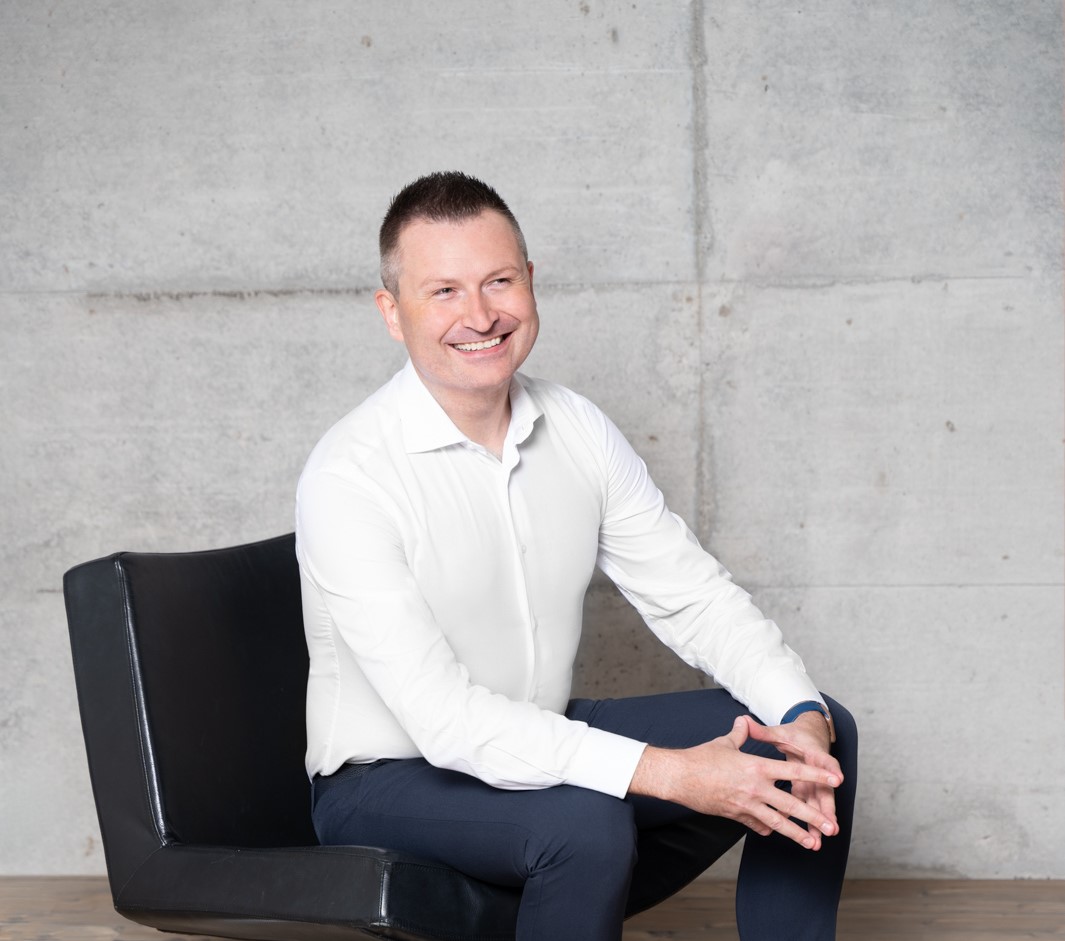Robert Narloch joined us in April this year as an Operations Consultant. In his Consultant Spotlight below, Robert talks to us about his career pathway to date, his love of Europe, and how he’s motivated by opportunities to affect positive change. Robert also shares his views on what challenges the EU MedTech industry will likely face in the coming years. Read his full interview below…
Why did you choose the medical industry?
I was born and raised in Gdansk, which is an important university centre of Poland. The city has many universities and faculties, so there’s plenty of opportunity to become whatever you want. I could have been an actor, a sculptor, an engineer, a researcher, anything. It was great to be raised in a city so rich with possibility.
Since I can remember, my dream was to contribute to science somehow – I guess you could say it was kind of a vocation.
When it came to preparing for my future, as well as having ambition, I also had to take a sober look at my capabilities. I was never good at maths or sports, but strong in biology and chemistry. I always enjoyed nature and I was really interested in the medical field.
As I grew into my older teenage years, I also became more conscious of people´s wellbeing. Having been brought up to consider others, as I matured it became clear that my career needed to involve developing treatments and cures, and in some small way, helping to put an end to suffering.
Tell us about your time at university in Gdansk.
My mum wanted me to be a medical doctor, so to satisfy her request I completed the entrance exam to study medicine. But I was much more passionate about Biotech, and more successful in my exams in this area. As it turned out, I was fortunate to have the opportunity to study both at the intercollegiate faculty of Biotechnology at the University of Gdansk.
For the first three years I followed the medical student program (so my mum was happy!), and for the last two years I attended the Biotechnology classes. I chose to work within the field of immunology, so I had the opportunity to study how immune diseases are linked to heart disease. My laboratory activity, which involved testing a lot of promising new medications for atherosclerosis, marked the beginning of my journey into scientific exploration.
But my university years were not just about academia. During the summer breaks, I participated in a volunteer program at an assisted living facility for the elderly in the Netherlands. It was two months of hard work, helping the nurses in their everyday tasks, and accompanying the elderly tenants on walks and excursions.
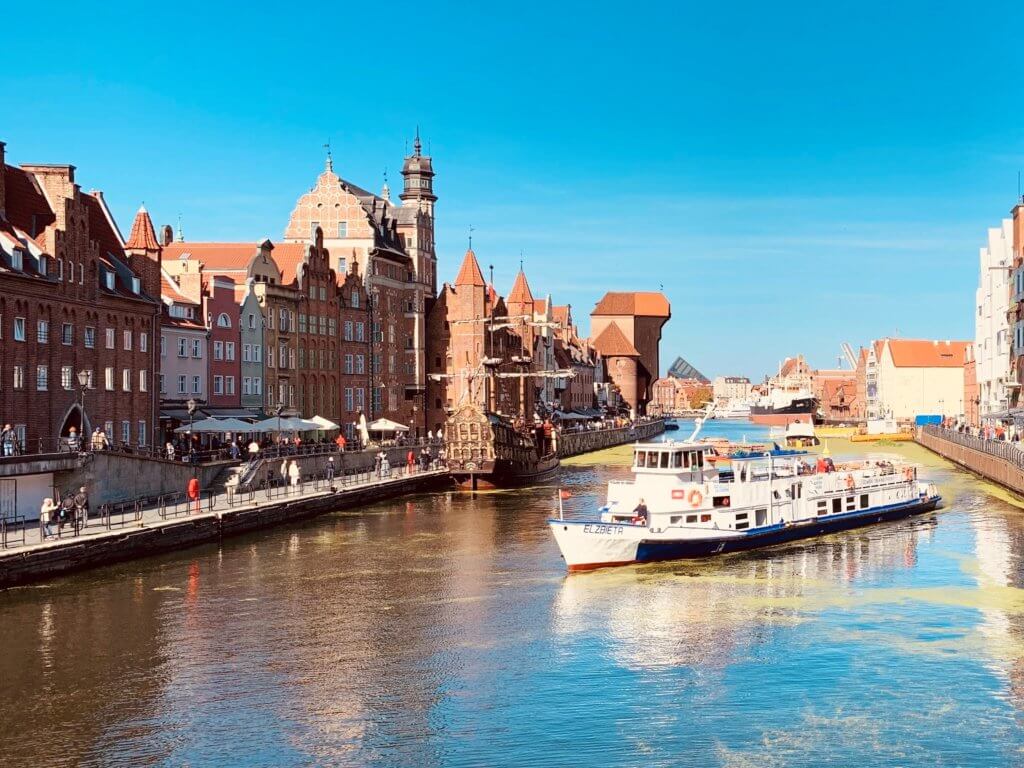
I worked with people in their 80s and 90s, and some who had even hit 100 years old! As a young man, I saw how my presence could reignite a little energy in these older folk, encouraging them to share their stories. Most of them were without families, so we were a kind of substitute family to them. I have especially fond memories of one gentleman who was 100 years old. He shared stories with me of his time during World War II. Following the signing of the Treaty of Versailles after the war, the “free city of Gdansk” was contested territory. And as it turned out, this gentleman had actually been the assistant to the High Commissioner of the League of Nations (now known as the United Nations), based in the free city of Gdansk. I got shivers when he told me – his story was a piece of history that was close to my heart as a Gdansk native.
I loved the first year so much that I went back every summer for the following four years. And I´m still in touch with the CEO of the organisation at that time, who is now my very good friend. Each year he visits Milan, and we enjoy catching up with one another.
Looking back on my time spent in the program – it really was a life lesson. I´m not afraid of getting old because of my encounters with the wonderful people at the facility – people who shaped our society and deserve to have their needs respected. Seeing the elderly in this environment, with their combination of ailments and illnesses, reinforced for me why it’s so important to invest in science. The experience confirmed my decision to pursue a career involving novel therapies, in the hope that one day I would see the result of my work on the drug store shelf, readily available to help those in need.
What prompted your move to Italy?
My university faculty was founded by a group of excellent professors. Having been forced to leave the country when they were young because of their political views (Poland was behind the Iron Curtain for half a century), they instead worked in well regarded universities elsewhere around the world.
When communism ended in Poland, many professors returned, amongst them, the founders of the intercollegiate faculty of Biotechnology. My professors encouraged us to travel, to learn other languages, and to respect and embrace other cultures. They told us that we should never stay in the same place for more than five years – to avoid falling into routine, and to make sure we kept growing.
Inspired by my professors, I decided to do my PhD abroad. Previously during my master’s, I’d had a chance to experience a six month student exchange as part of the Socrates Erasmus program. I worked in a lab in Perugia, Italy, learning how to use confocal microscopy and other staining techniques like immunofluorescence. It was during this time that I unexpectedly fell in love with Italy. So, whilst I applied to various places for a PhD position and was fortunate to receive acceptances from a few prestigious European universities, when I saw the email from the European Institute of Oncology in Milan, I said “yes, that´s it”.
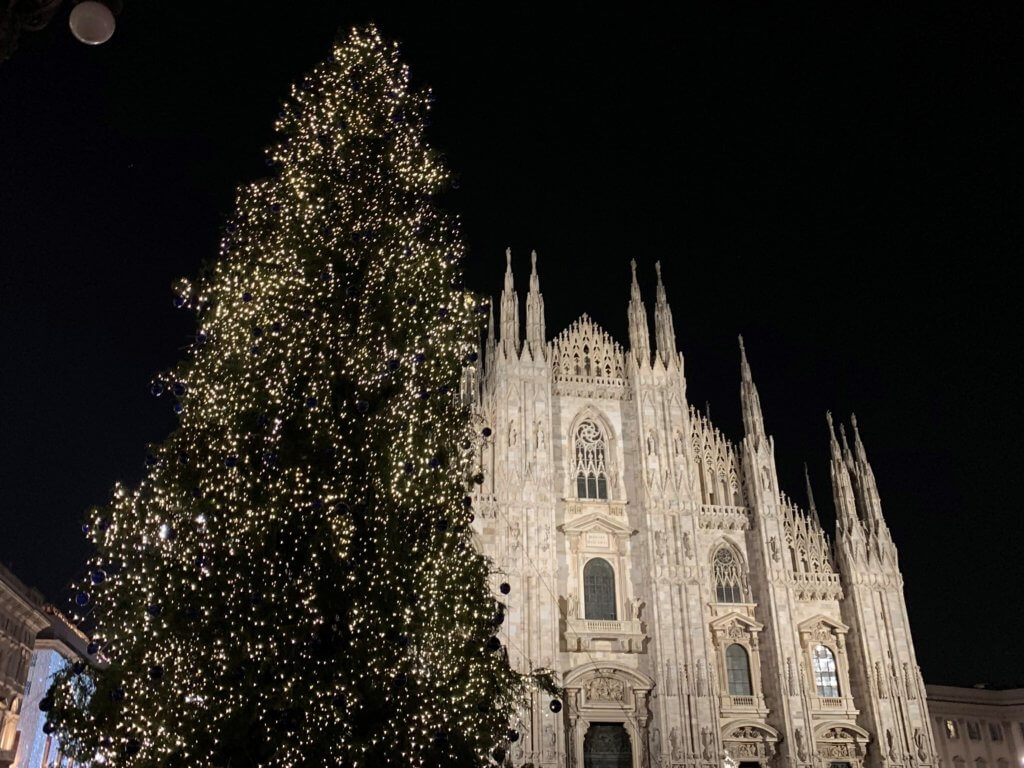
I arrived in Milan in the December of that year. The staff and students at the institute were very kind and hospitable and I ended up staying in Milan for more than what was required for the exams, so I had a chance to really see the city. When I look back, I see myself as this young, poor student from an ex-communist country, embracing everything new and exciting. I was so hungry for the experience and having the opportunity to take the exams there was a dream come true.
Returning to Poland for Christmas, I received the great news that I´d been accepted. It marked the start of another chapter in my life, and I didn´t know what to expect. I couldn´t speak Italian very well – just some survival vocabulary. And even though my PhD course was in English, to integrate with the community, learning the language was essential. I think people trust and accept you more when you speak their language – because it allows you to speak to their hearts somehow.
After starting my PhD, life took an unexpected turn, and I switched projects and laboratories – moving from melanoma research to other solid cancers. Our group identified 49 novel targets to overcome the chemotherapy resistance in solid tumours and focused our work on figuring out how to improve existing treatments.
Following my PhD thesis, the natural step was to continue with more research. For the first time I didn´t want to move on to a new place – I had made connections in Milan and wanted to stay. So, I found another group and a new and challenging project – this time working with leukaemia for my Post Doc at MultiMedica Private Hospital. However, after a few months my professor, who was a very important expert in my research field, got sick and unfortunately passed away. Whilst I continued with my research, after 18 months I decided to leave academia, and join the industry.
How did you find the transition from academia to industry?
It´s not always easy for a researcher to transition into industry, because sometimes companies struggle to see university experience as valid “work experience”. But I was lucky enough to be offered a place at the world-renowned Eurofins laboratories in Milan.
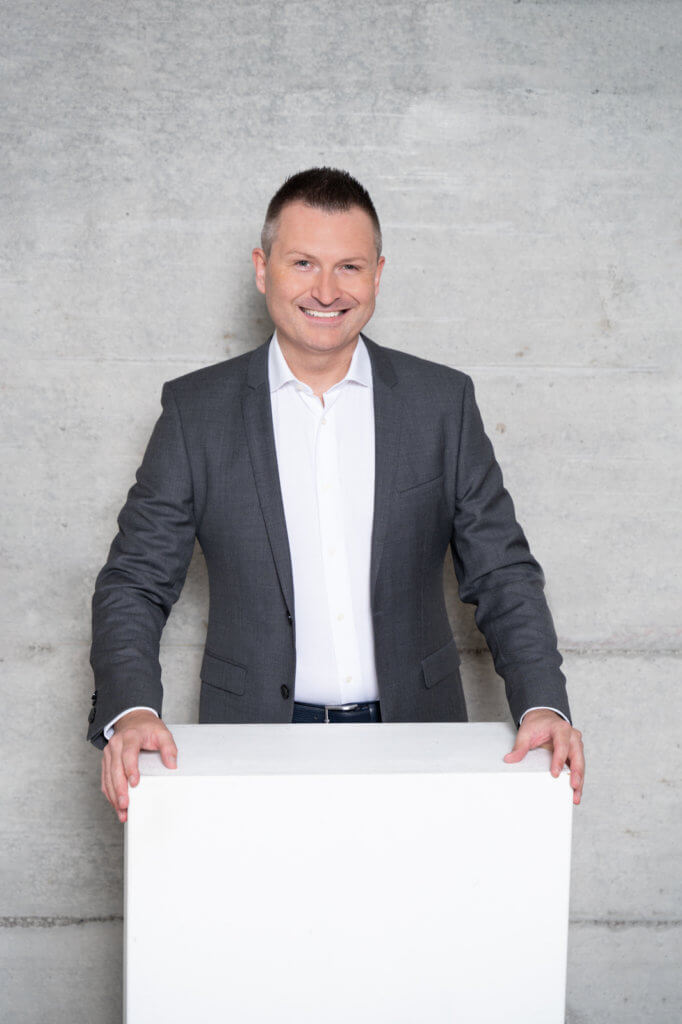
In my eight years at Eurofins, I never once said no to new challenges. I started as a Technical Advisor to my clients, before moving on to work in the GLP archives, participating in the inspections and audits performed by the Ministry of Health each year. I found the GLP archive role somewhat fascinating – working with inspectors and partners who had both a scientific and political background. Then I became a GLP study director, which is where I began my in-vitro experience with tissue cultures regarding cancer cells, before finally becoming a project manager.
I had a lot of fun working at Eurofins across varied roles. I especially enjoyed the trouble-shooting part of my job – being relied upon to use my expertise and knowledge to explain unexpected results and solve problems. I owe a lot to my time at Eurofins – the team there always pushed me towards new challenges, and I learned a lot with them.
After Eurofins you moved into consultancy – what was the reason behind that?
Having enjoyed the project management and consultancy sides to my Eurofins roles so much, after eight years at the company I decided to move to a consultancy company in Lugano area. I experienced a very nice environment at the consultancy and enjoyed my time there, but I still had a dream of working for a large, prestigious medical device manufacturer.
My mentors always told me that working with the “worst-case” medical devices would prepare you for any scenario. Implants are indeed “worst-case” devices, so when I saw a job opportunity at Congenius to join the team of Biocompatibility experts at DePuy Synthes, I jumped at the opportunity. I thought – if I can make it there, I can make it anywhere!
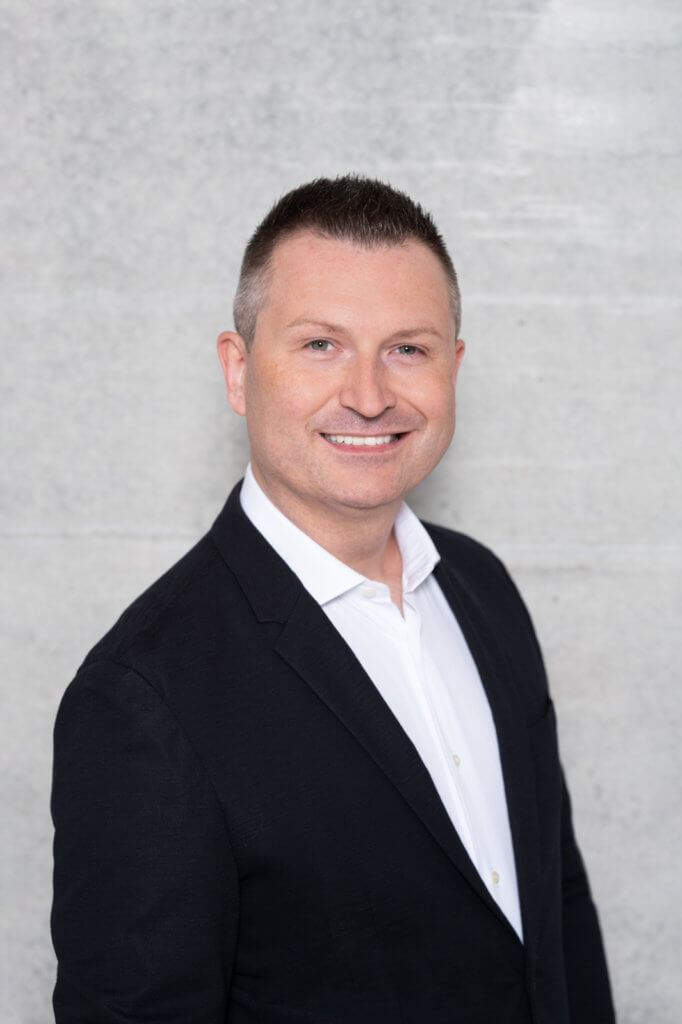
The Congenius recruitment process was exceptional. I was really amazed at the kindness and professionalism of Jörg, Stephanie, and Bastian. From the first moment I was treated as a partner, not a candidate, and it made me feel great. Congenius is an organisation of great people who really believe in their core values. And it was nice to discover that the Congenius values are actually my values too!
It’s turned out to be a great move. I´m learning a lot about manufacturing processes, raw materials, analytical techniques, chemical characterisation studies, and toxicological evaluation of the chemical studies that are performed on implantable devices. I think toxicology is the future, as it spans medical devices, pharmaceuticals, food, air, and water – it’s basically applicable everywhere.
What kind of challenges will the EU MedTech community face in the coming years?
Long term health matters, so we shouldn’t be short-sighted. Cancer is not something that happens in 24 hours. You can have a device implanted in the year 2000 and develop cancer a long time after. And so, the challenge is to investigate your medical device considering its long term shelf life, performing chemical characterisation to demonstrate that the device is safe and futureproof. And if it’s not, the early investigation still allows you a chance to modify the device at a minimal cost compared with reactive measures further down the line.
Another challenge in the coming years will be maintaining the high quality of medical devices without succumbing to the temptation to switch to cheaper, less-thorough providers. The aftermath of the pandemic and the war in Ukraine mean that we will continue to face an economic crisis in Europe. Some manufacturers may be tempted to find cost-cutting solutions. But I think when we are talking about healthcare, we cannot look for simply the cheapest solution – we must prioritise effective solutions that enable clean and well-performing medical devices. Biocompatibility specialists and Toxicologists are here to assist manufacturers with those tough decisions.
Dealing with climate change and rising levels of pollution are also challenges that we will continue to face. As an industry we´ve started to talk about the green transition to renewable energy. But the current, worldwide geopolitical situation is affecting progress. We still have time to act, but it´s not easy. We will have to look for new pharmaceuticals, even new medical devices, to filter polluted air or water to help people survive in polluted environments. Because ultimately, we must leave the world clean for future generations.
Having lived in various European countries, what do you enjoy most about Europe?
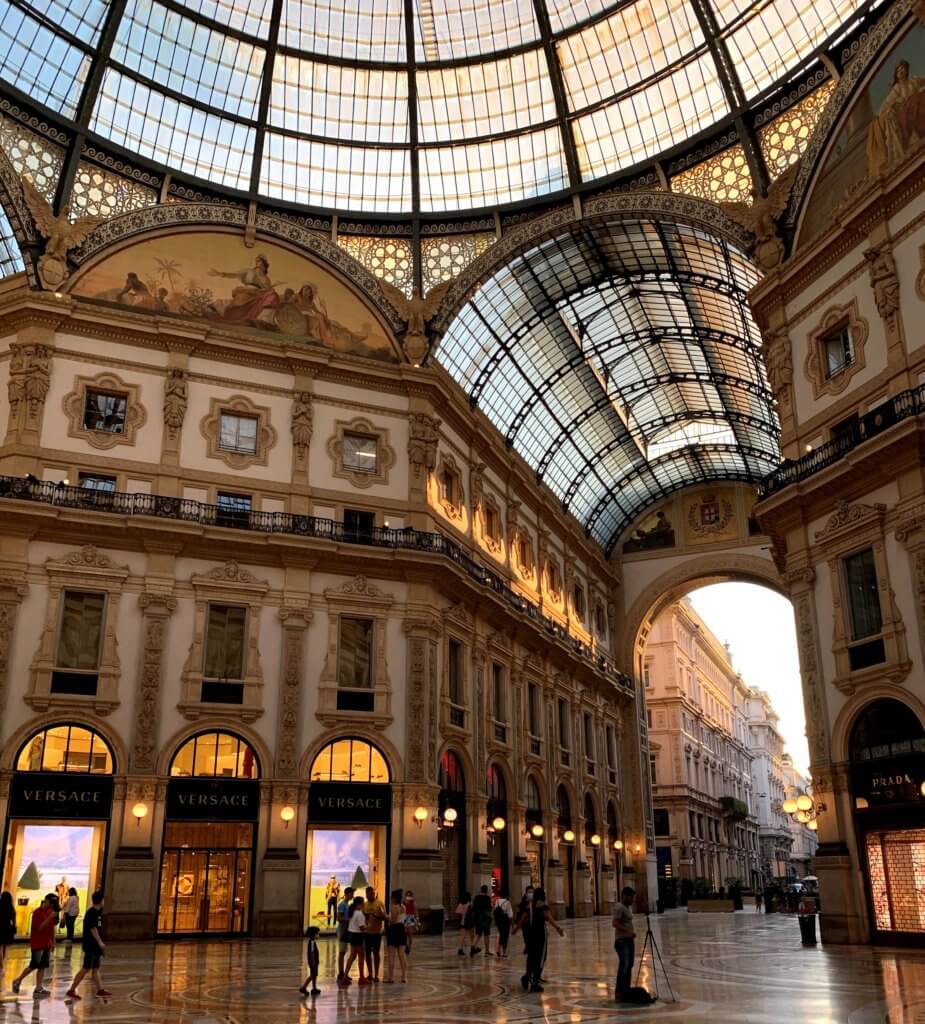
My career journey started in Gdansk, continued in Milan and Lugano, and now my inspiring work is based in Oberdorf and Basel. Milan is so enjoyable during the weekends with plenty of nice spots to visit and, of course, delicious Italian food. Basel is a great city too! It is my new home now and allows me to enjoy the Swiss precision and punctuality, Swiss culture, the museums and art exhibitions, and the beautiful landscapes. I must say, I´m a lucky guy!
In my spare time I enjoy political debate – and in the future I would like to be more politically active. I would like to work on a local level for the European Union and for the European community because I strongly believe that it doesn´t matter which country you come from and what language you speak, we should all work for a better future, for all nations. Not only in Europe – but let´s start here. Because if we have a balanced situation in Europe, then we can really, in a peaceful way, impact the rest of the world. I think the European Union in that respect deserves effort, especially from younger generations.
I feel Polish, and I feel Italian, but at the same time I also respect the Swiss culture and its independence – I think the Swiss have great ideas. If we were to combine the strengths of our nations, we would likely discover great ways to solve problems. It comes down to mutual respect. If you respect other nations there are no barriers to living peacefully and productively – and of course when this kind of collaboration occurs, the wellbeing of people will prevail.
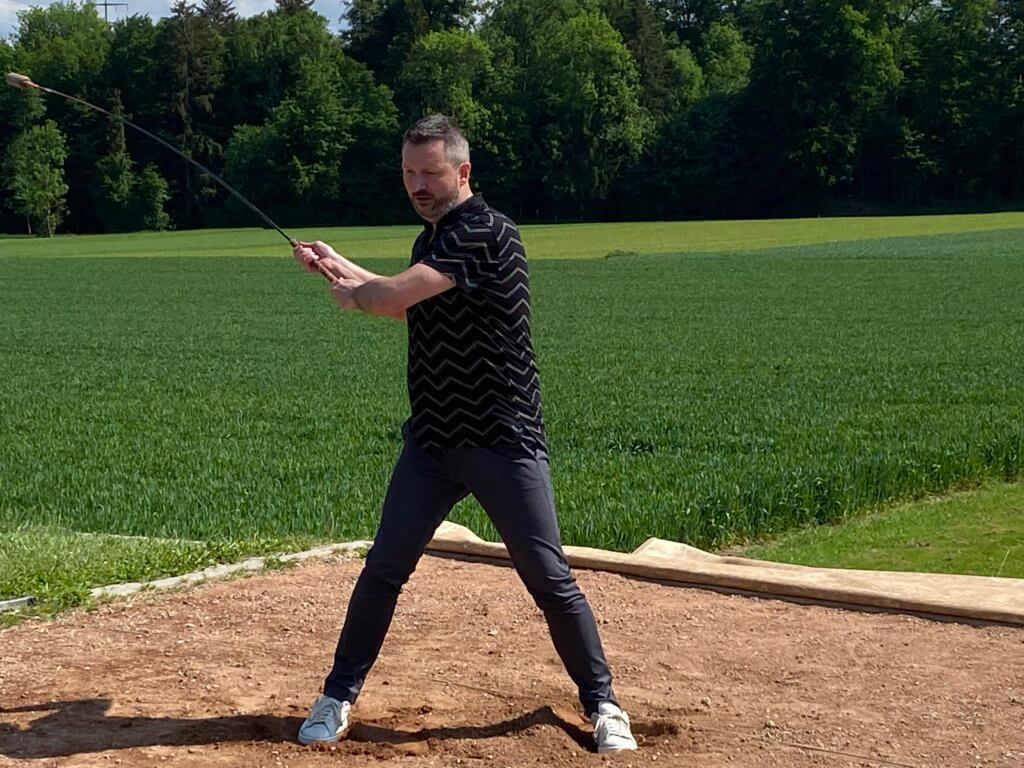
What kind of impact do you want to make on the industry?
In the future, it would be rewarding to be considered an expert – someone that people come to for an opinion, especially young people. Then when I finally have more free time, I want to stay active with a local political career.
I had a taste of local politics as an 18-year-old, when I volunteered as a member of the Municipal District Council in Gdansk. We dedicated our free time to helping the poor by organising collections of books, clothes, and food. It was a time where internet was not that widespread, so we were also working to bring internet connectivity to our suburb. We organised concerts and parties to show people that life is made of more than just surviving – not only going to work or school, but also about music, art, and culture.
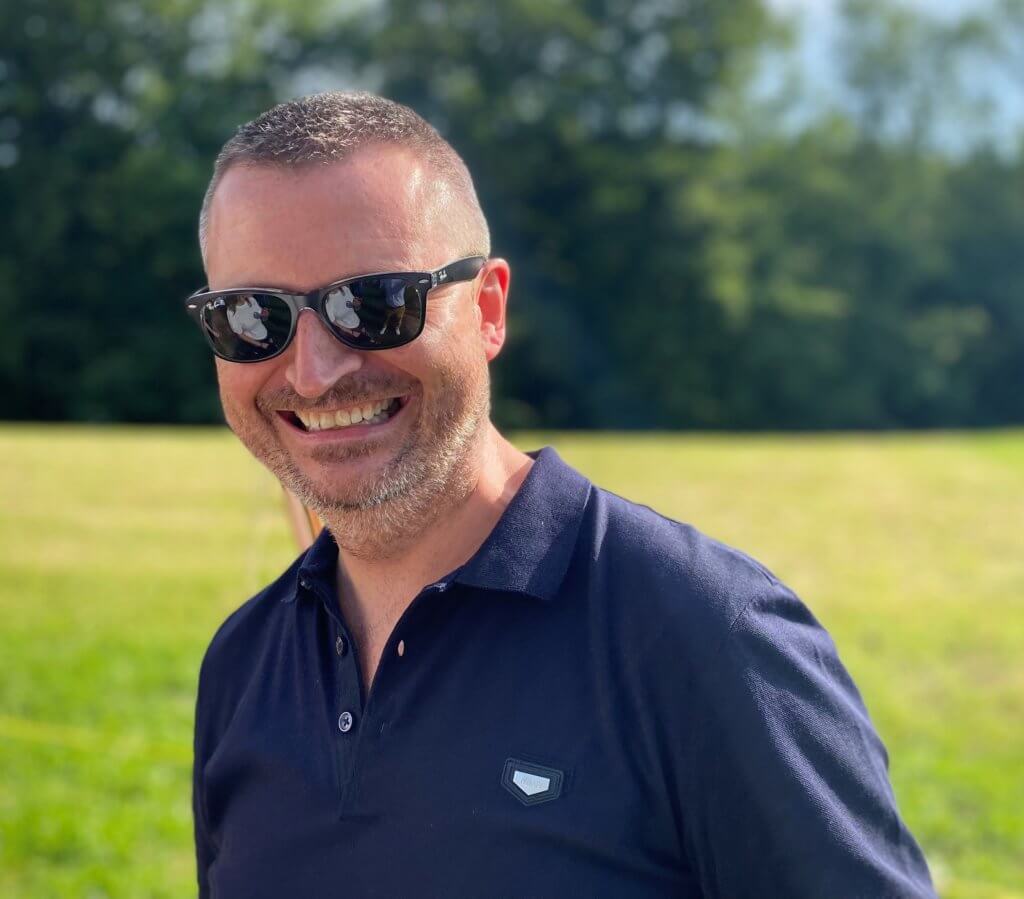
And so, looking ahead, I want to keep learning, and to develop my skills in areas like toxicology, with the aim of becoming a mentor for young scientists – like my professors were for me.
Following this, I think dedicating my days to instigating positive change within whichever community I find myself part of in years to come, will be time well spent.

